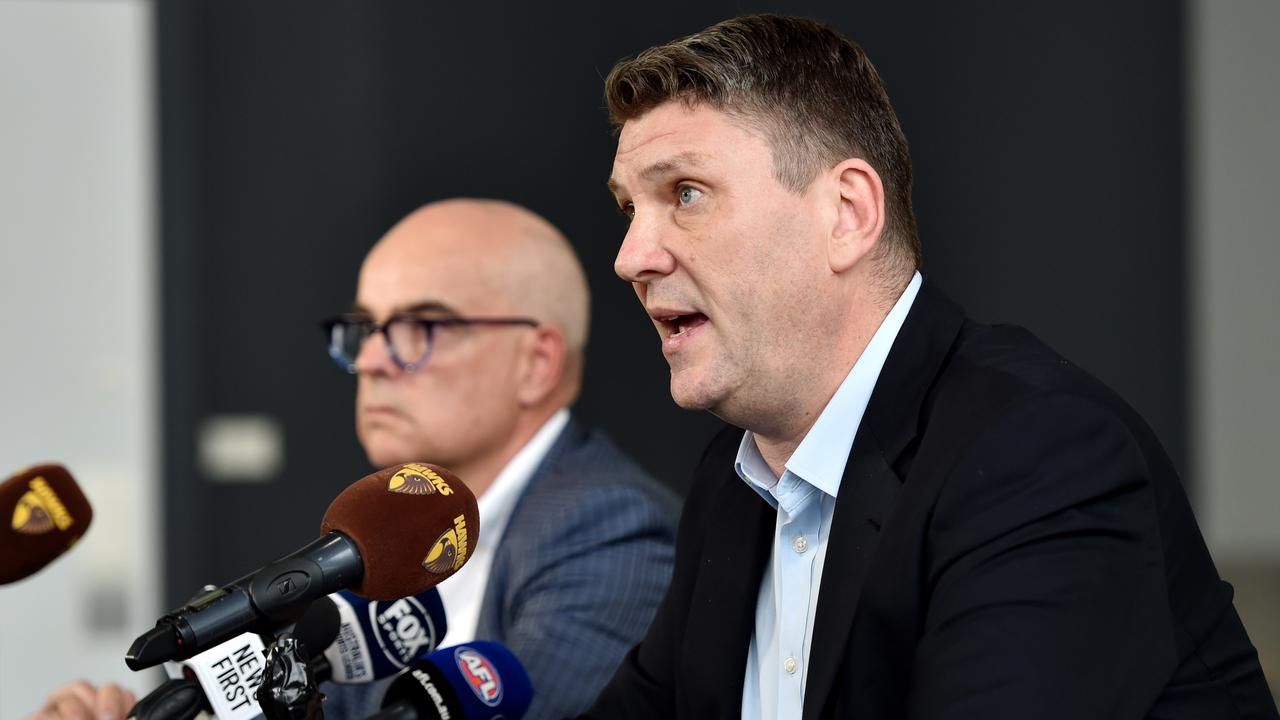GST deal orchestrated by Scott Morrison costing budget billions
A “festering sore” brokered by Scott Morrison is costing the budget billions extra a year, and getting out of it will take a “big fight”.
NewsWire
Don't miss out on the headlines from NewsWire. Followed categories will be added to My News.
A “festering sore” in the form of a deal cut by Scott Morrison to save seats in Western Australia has blown out to cost the federal government nearly $20bn more than it was supposed to, dramatically adding to budget pain.
GST reforms were designed by Mr Morrison as treasurer in 2018 to aid WA from a collapse in its share of the GST pool, which had fallen to just 30c in the dollar because its iron ore royalties were being shared among other states and territories.
The state was forecast to receive just 15.8 per cent of its population share of the national GST pool in 2022-23 and a forecast share of just 1 per cent in 2023-24.
Under Mr Morrison’s deal, a new relativity floor of 70 per cent was introduced, meaning WA – and all states – must receive 70c for every dollar of GST raised in the state in 2022-23 before rising to 75c a dollar in 2024-25.
After that, the safety net will give way to a new system that will base the states’ share of GST on the stronger of NSW or Victoria.
The reforms were based on the assumption that iron ore prices would eventually fall and WA’s share of the GST pool would rise. But prices have soared, and given Mr Morrison committed to other states and territories that they would not be worse off, top-up payments are being funnelled from elsewhere in the budget over and above the more than $80bn GST pool.
In 2021-22, the first pool top-up was $600m, with the government expecting the top-up to rise to more than $850m in 2024-25 and in every year through to 2027-28.
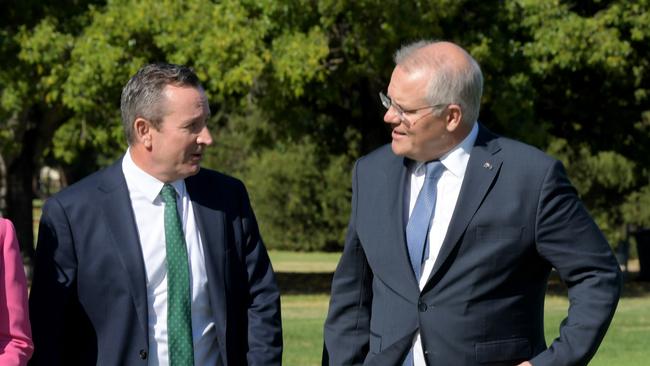
But as iron ore prices continue to soar, WA is raking in mining royalties while also receiving millions extra from the federal budget.
Economists say the deal has eased the state’s budget situation “substantially”, noting WA recorded a $1.2bn surplus this financial year.
And, while the deal was brokered to save Liberal WA seats in 2019, it did little to stop the washout in the last election and is now costing the budget an additional $4bn to $5bn extra a year on top of the existing GST pool.
Economist Robert Carling says the situation is becoming a “festering sore” as the budget approaches $1 trillion in debt.
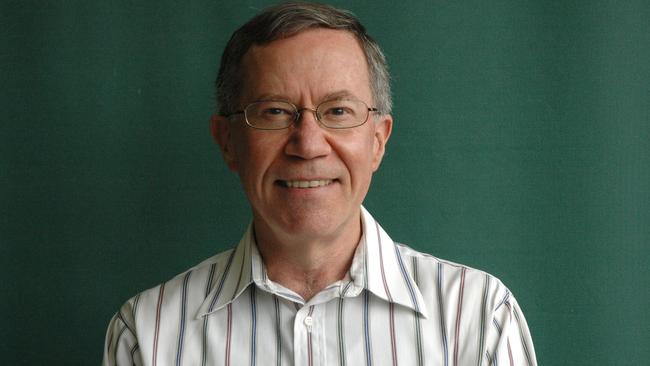
“It certainly makes balancing the federal budget that much harder,” he told NCA NewsWire.
“At the moment … it’s making the federal budget $4bn to $5bn a year more difficult.
“It also goes against the original design of the GST system, which was meant to be that all of the GST revenue goes to the state, but there will not be any more general revenue assistance. Obviously, there is specific purpose payments for schools and hospitals and so on, but there would not be any additional general revenue assistance from the federal budget back to the states.
“That tenant has been broken, and it’s really hard to put it back together again.
“It’s going to be a big fight eventually to get out of it.”
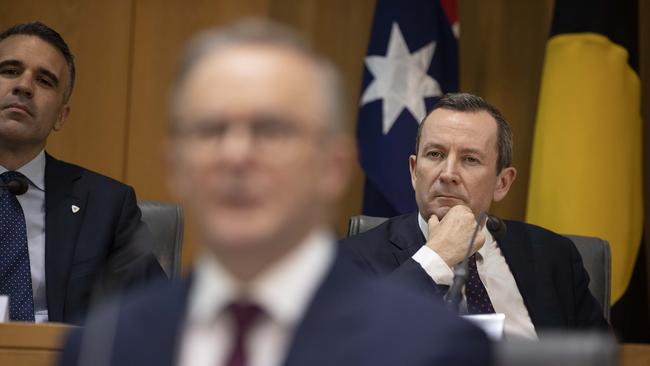
When former prime minister Malcolm Turnbull and Mr Morrison announced the plan, they estimated in the first three years it would cost the budget $2.38bn, including just $293m in 2021-22.
Instead, last year, the deal cost $2.1bn after the original estimate blew out to $5.2bn between 2018 and 2022.
Over the next four years, the Albanese government will need to spend $15.7bn to transition to the new system, totalling more than $21bn over seven years.
Victoria has already called for the no-worse-off guarantee to be extended beyond June 2027, warning that without supplementary payments the state could be worse off by between $3.5bn to $6.5bn from 2021-23 to 2026-27.
Professor Carling said the deal, as expensive as it was, was unlikely to end early.
“This is a festering sore, and nobody knows how they’re going to get out of the bind that they’re in,” he said.
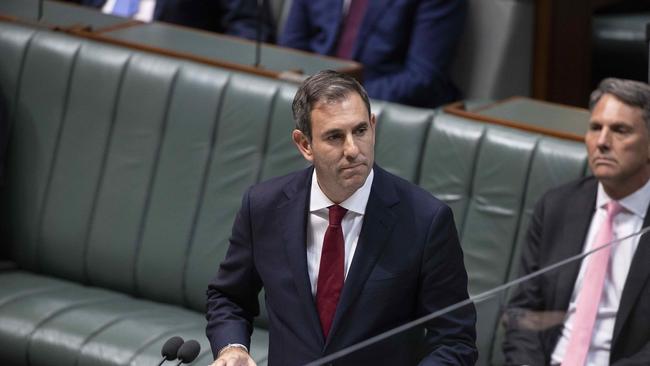
Treasurer Jim Chalmers has reaffirmed his commitment to the plan.
“We are committed to the legislated deal and the costs that are factored into the budget,” a spokesman for the Treasurer said.
WA Premier Mark McGowan acknowledged the cost had increased from the original estimate but said every state, not just WA, could expect to benefit.
“Other states can expect $16bn extra revenue over 2020-21 to 2025-26 because of the high iron ore prices to date that are redistributed through the GST system,” he told NCA NewsWire.
“Although higher iron ore prices will increase the cost of the reforms, this is more than offset by higher commonwealth revenues.”
He said the strong mining sector was benefiting the economy as a whole and expected the GST reforms to remain.
“They were introduced as a fairer, reasonable and more sustainable way to distribute the GST,” he said.
“The GST reforms recognised that the way the GST was previously distributed among the states and territories had many shortfalls and was not designed to deal with significant economic shocks – such as WA’s mining boom.
“Ending the GST reforms would ignore the findings from the independent Productivity Commission report and mean the high costs facing WA, such as WA’s significant areas of remoteness, would once again not be adequately recognised.”
Originally published as GST deal orchestrated by Scott Morrison costing budget billions

